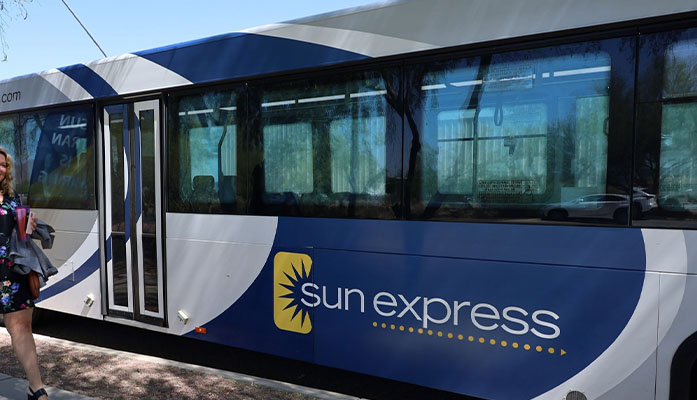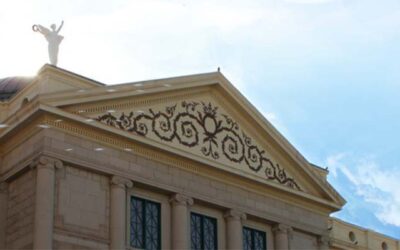By Corinne Murdock |
The city of Tucson is looking into potential funding options to cover the $11 million it would take to keep public transit free every year from here on out.
Prior to this year, the city used federal COVID-19 relief funds to keep public transit fare-free. When the city first announced free busing back in March 2020, the city claimed that the purpose was to avoid crowding at the farebox in addition to providing fiscal relief to riders.
Bus fares were scheduled to resume on January 1 of this year; however, the city managed to source funding for these past six months.
City officials have also sourced enough funding for the next six months. For this upcoming round of subsidies, $2 million came from new hotel and motel taxes, $790,000 came from Tucson Medical Center revenue, and $600,000 came from Visit Tucson revenue. That totals just under $3.4 million.
However, community members are saying the three-year experiment in free public transit has proven much more of a burden than a help. Many have complained that the free transit essentially aids criminal behavior and facilitates public nuisances.
Bus driver union leaders expressed concern about quality control with fully-subsidized bus fare, particularly pointing out the homeless that ride the bus nonstop during the summers to avoid the heat. Teamsters Union 104 Business Manager Kevin Hampton told 13 News that free busing threatened passenger and public safety.
“We don’t want our drivers to become the transit police,” said Hampton. “We’re more interested in finding long-term solutions to combat the reasons why people want to ride the bus all day.”
Passengers have complained to local outlets that the free busing allows “too many troublemakers” to board the buses.
Public safety activists like Josh Jacobsen with Tucson Crime Free Coalition allege that free busing has facilitated drug sales, trafficking, and even usage. Jacobsen also told KVOA that the buses also serve as convenient getaways for robbers and thieves.
“The free buses are contributing to a lot of the movement of narcotics, specifically fentanyl around our community,” said Jacobsen. “There are a lot of reports of individuals using drugs on the free buses. And the free buses also play a large role in the organized retail theft of businesses around our community.”
In December, AZ Free News reported that the council felt they would have to shift the cost burden to taxpayers to cover bus fare. At the time, Mayor Regina Romero suggested additional parking garage fees, Councilwoman Lane Santa Cruz proposed an additional property tax.
The city also secured a financial partner for bus subsidization: defense manufacturing giant Raytheon. The city council noted that they were attempting to convince the University of Arizona and Tucson Unified School District to also join as funding partners.
Cost estimates for taxpayers to subsidize busing permanently ranged around $1 million a month.
Corinne Murdock is a reporter for AZ Free News. Follow her latest on Twitter, or email tips to corinne@azfreenews.com.








